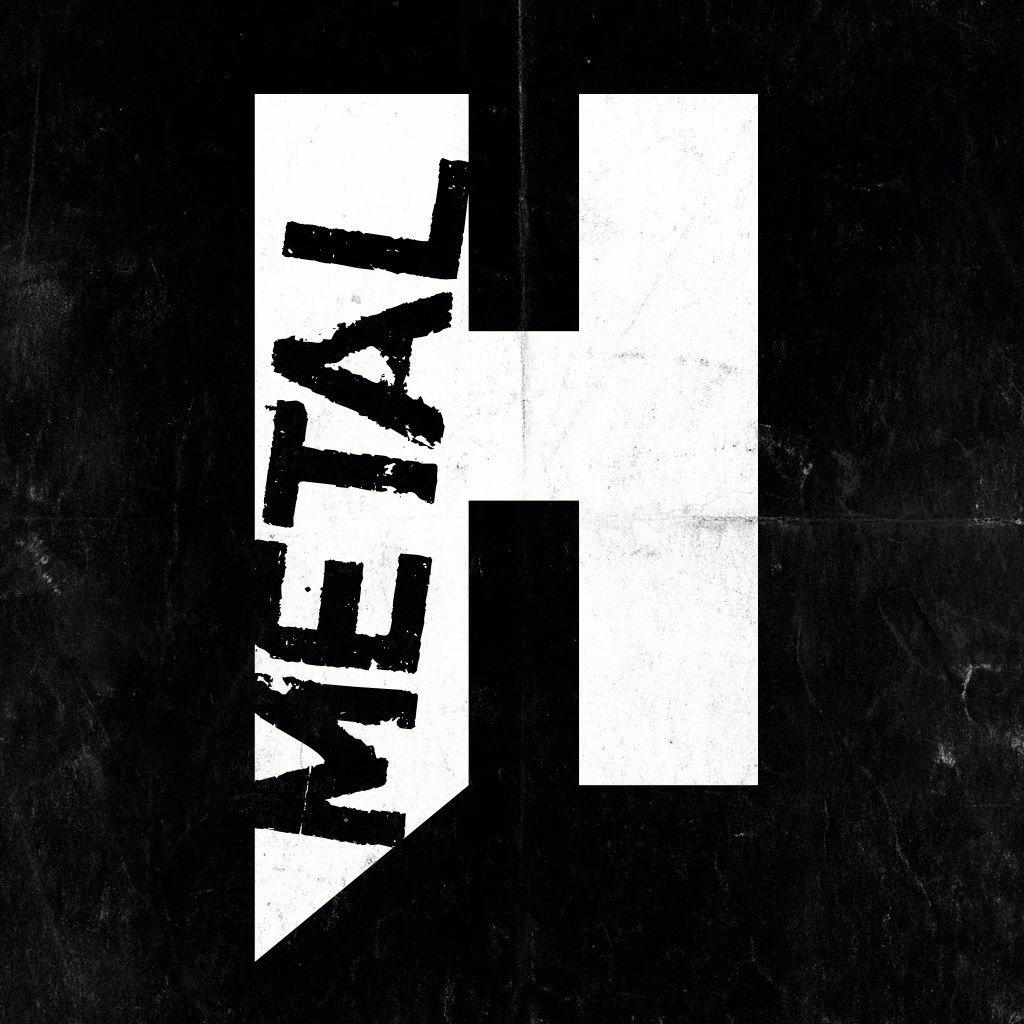The 50 best metal albums of the 2010s
We asked, you voted – here are the 50 best metal albums of the last 10 years
Select the newsletters you’d like to receive. Then, add your email to sign up.
You are now subscribed
Your newsletter sign-up was successful
Want to add more newsletters?

Every Friday
Louder
Louder’s weekly newsletter is jam-packed with the team’s personal highlights from the last seven days, including features, breaking news, reviews and tons of juicy exclusives from the world of alternative music.

Every Friday
Classic Rock
The Classic Rock newsletter is an essential read for the discerning rock fan. Every week we bring you the news, reviews and the very best features and interviews from our extensive archive. Written by rock fans for rock fans.

Every Friday
Metal Hammer
For the last four decades Metal Hammer has been the world’s greatest metal magazine. Created by metalheads for metalheads, ‘Hammer takes you behind the scenes, closer to the action, and nearer to the bands that you love the most.

Every Friday
Prog
The Prog newsletter brings you the very best of Prog Magazine and our website, every Friday. We'll deliver you the very latest news from the Prog universe, informative features and archive material from Prog’s impressive vault.
40. Voivod - The Wake (2018)
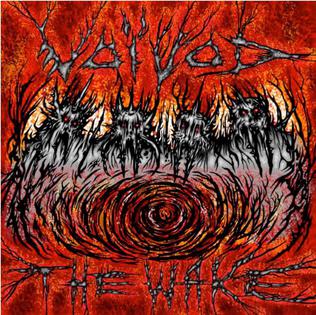
Against the odds, Voivod’s 13th studio album turned out to be a lucky one. The death of talismanic guitarist Piggy in 2005 may not have ended the Canadians’ story, but it certainly made moving forward a daunting proposition. But such was the flair and verve that new guitarist Dan ‘Chewy’ Mongrain brought to 2013’s Target Earth, it felt more like an exercise in artful continuity than a break from the past.
But if the first Piggy-less Voivod record steadied the ship and kept the fans happy, their 14th full-length, The Wake, was where this most instinctively subversive of bands veered off on another of those wonderfully wilful tangents that brought us the seminal likes of Nothingface and The Outer Limits. Fifty-six minutes of the wildest and densest music they’d made in a long time, it was unmistakably Voivod, but somehow bigger, more colourful and more avowedly psychedelic than ever before.
Opening track Obsolete Beings was partly a red herring, its central riff letting you know precisely whose world we’d been transported to, but by the time The End Of Dormancy slithered into view, the sonic psilocybin had kicked in and the landscape suddenly looked a lot less reassuring.
The level of invention here was absurd; with Snake’s voice providing the narrative glue, Voivod sounded drunk on ideas, these songs’ generous proportions allowing each bizarre detour to reach its most satisfying, (un)natural conclusion.
There were plenty of Dimension Hatröss-era thrills for the faithful, of course; Orb Confusion was like all of the band’s revelatory, late-80s moments crammed into six breathless and joyously wonky minutes, while Always Moving was part pop-eyed thrash, part Syd Barrett reverie. But at its heart, amid the kaleidoscopic, skew-riff meltdown of Spherical Perspective, the collapsing grooves of Event Horizon and the bewildering, cinematic frenzy of closing colossus Sonic Mycelium, The Wake was like nothing else on Earth and proved Voivod were still in a class of one.
Our score: 9/10
Sign up below to get the latest from Metal Hammer, plus exclusive special offers, direct to your inbox!
39. Baroness - Purple (2015)

There’s enough trauma in the world right now that even the tiniest crack of light is something to cling to.
For Baroness, that crack of light came in the shape of their fourth album, Purple. In August 2012, a horrific bus crash almost wiped the US band out, leaving singer/guitarist John Baizley hospitalised and in danger of losing his arm. Purple was the product of both personal trauma and Baizley’s long and painful physical rehabilitation.
Purple simultaneously built on what Baroness's previous albums had achieved and reined in their sometimes overwhelming sprawl. Shock Me came clad in heavy metal drag – fuzzy guitar, tumbling drums – but its deceptively simple yet electrifyingly huge chorus indicated keener minds at work.
Lyrically, Purple erred on the side of the battered. ‘She cuts through my ribcage and pushes the pills deep into my eyes,’ sang Baizley on the undulating, spiritually dislocated seven-minute centrepiece Chlorine And Wine. His arid holler possessed the same limited effectiveness as that of Jaz Coleman. It wouldn't have won him the 2015 series of The Voice, but it carried all the urgency and desperation you’d expect from a man who once woke up with a 20-ton bus on top of him.
You don’t have to be a shrink to work out that Purple was a work of pure catharsis, and a sometimes tortured one at that. But whether they meant to or not, Baroness had made an album that brimmed with hope. That was one a hell of an achievement.
Our score: 7/10
38. King Gizzard & The Lizard Wizard - Infest The Rats' Nest (2019)
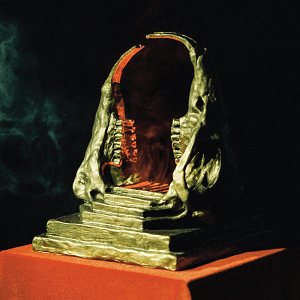
No worries if this King Gizzard & The Wizard Lizard album is not to your taste – they'll probably have made another five by the time you read this. Some of their fanbase may have relied on that consolation on this fifteenth album – their second in 2019 – because Infest The Rats’ Nest ditched the band's previously trademark lysergic quirkpop for a crack at big-four era thrash metal.
No, really. It could have been as cringeworthy as a sludgecore band attempting reggae, but while tongues may have edged towards cheeks on lyrics such as Perihelion’s reference to ‘eating sinners for dinner’, their passion for thrashin’ sounded pretty real.
Frontman Stu Mackenzie nailed a Hetfield-esque gurgle from the galloping, squiddle-spattered opener Planet B, and it was hard to resist the rat-a-tat riff and stuttering vocal of Self-immolate or the insistent turbo-Sabbath churn of Mars For The Rich.
Ambient free jazz next? Who cares. This record cemented King Gizzard's metal chops – and Metal Hammer readers voted it the 38th best metal album made this decade. Long may their thrash metal foray continue.
Our score: 7/10
37. The Dillinger Escape Plan - Dissociation (2016)
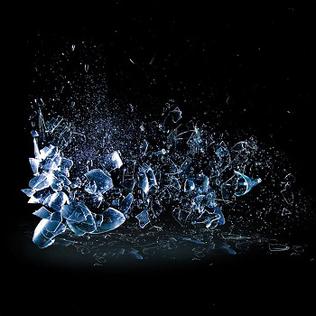
As they approached their 20th anniversary in 2017, The Dillinger Escape Plan – New Jersey’s masters of mind-mincing mathcore – shunned the usual self-congratulatory nostalgia route by going on an “extended hiatus”. It was a typically abstruse move from a band who had steadfastly refused to toe the line from day one.
Dissociation’s frequently bewildering contents seemed a very fitting way to bow out.
The band’s sonic bedrock of scattershot and insanely nimble mutant hardcore remained firmly intact on opener Limerent Death and the rampaging, jazz-sodden Low Feels Blvd, while their knack for jamming strange but irresistible melodies into an ultra-hostile din once again bore fruit on the dense menace of Honey Suckle.
Meanwhile, Fugue was four minutes of disfigured, glitch beats and Residents-like surrealism, and Wanting Not So Much To As To was a nightmarish art-metal joyride.
Dillinger remained a proudly unique proposition, and Dissociation was a thrilling, and apparently final, fuck you to the status quo.
Our score: 8/10
36. The Hu - The Gereg (2019)
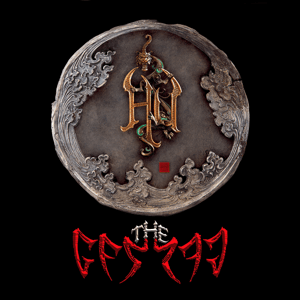
At the very end of Shireg Shireg, the lilting, rather lovely song that closed the debut album by Mongolian sensations The HU, the music gently faded to expose a rhythm that backboned almost the entire album: the sound of trotting hooves. It was like being shown how a great piece of magic works, with the big reveal enhancing the cleverness of the trick rather than spoiling it. For The Gereg was a remarkably clever album.
It had been attempted before, this kind of thing, combining the throat singing and folk melodies of Central Asia with Western rock music, but never so subtly, nor as smartly. Unlike the great Tuvan rock band Yat Kha, or – more recently – Tengger Cavalry, The HU resisted the temptation to ramp up the volume in the pursuit of global appeal, instead finding an audience through a series of spectacular videos that amplified the band’s visual appeal rather than aligned their sound with any number of take-yer-pick stadium fillers.
Without shifting the sonics too far from their roots, The HU created an album that felt epochal. From the viral smashes – Yuve Yuve Yu, Wolf Totem and The Great Chinggis Khan – through the epic sweep of The Song Of Women and the foreboding chug of The Same, it was music of intense drama and widescreen beauty. It was music that somehow painted a vivid portrait of the land from which it had sprung.
And for music that didn’t shy away from covering subjects unusual in heavy metal – The Legend Of Mother Swan reflected on the power of a mother’s love for her offspring – it was music that somehow felt both familiar and comforting. It was as if we’d all grown up throat singing, with the jaw harp and the horse head violin and the three-stringed lute. Such was its power.
Our score: 9/10
35. Amon Amarth - Jomsviking (2016)
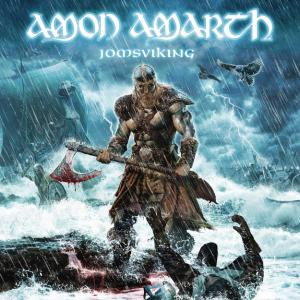
Amon Amarth’s highly successful take on Viking-obsessed death metal with a pop-tastic ear for melodic riffs had been honed to a sharp spearpoint by 2016, so it was highly unlikely that Jomsviking was ever going to be shit.
The Swedish metallers had been singing about Norse mythology for years, but Jomsviking was their first true concept album – and it was based on an epic story written by vocalist Johan Hegg himself. His primary inspiration was the Jomsvikings, a fearsome clan of warriors from the 10th and 11th century who would accept anyone willing to swear allegiance to their cause.
There were plenty of the grin-inducing moments that had rightly earned them wide popularity, right from when First Kill hared out the traps, and continuing through the anthemic, absolutely fantastic not-quite-title track The Way Of Vikings. These two, along with the crunching, rapid-fire attack of On A Sea Of Blood, and the singalong-ready Raise Your Horns, made sure Jomsviking had the things you most want from an Amon Amarth album: songs you can immediately remember that are going to sound massive live.
By and large, this was killer business as usual from Amon Amarth. True to form, Jomsviking slayed.
Our score: 7/10
34. Meshuggah - The Violent Sleep Of Reason (2016)
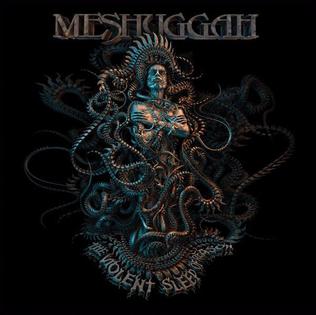
One of metal’s few consistent miracles, this Swedish quintet have been an unwavering force of originality and progressive thinking for decades.
What continues to be genuinely startling about Meshuggah is how their meticulous devotion to moving forward has enabled them to keep their distance from any aspiring contemporaries and seem, like precious few other modern bands, entirely separate from the sonic status quo.
The Violent Sleep Of Reason was that ethos of artistry and invention writ large over some of the heaviest and most hypnotic music of the band’s career.
Meshuggah’s eighth full-length was disgustingly heavy. Eschewing the more digitally focused, robotic perfection of their previous records in favour of living, breathing ensemble performances blasted through real amplifiers and speakers, they instantly sounded more terrifying than ever before.
Clockworks was a typically authoritative opening statement of intent, commencing with the mother of all incomprehensible polyrhythms before morphing and mutating across seven minutes of joyously pulverising riff worship, with Jens Kidman spitting his obtuse diatribes with more presence and clarity than even he had mustered in the past.
More so than on anything they’d released since Chaosphere in 1998, Meshuggah sound hellbent on crushing anything and everything that steps in their path. In truth there wasn’t a single moment that didn’t sound like an unstoppable, alien force restating its supremacy.
Their heaviest, smartest and possibly even best album, The Violent Sleep Of Reason was metal striding towards the brink of infinity. We are still not worthy, but by Christ, it still feels good to cower in Meshuggah’s suffocating shadow.
Our score: 9/10
33. Sleep - The Sciences (2018)
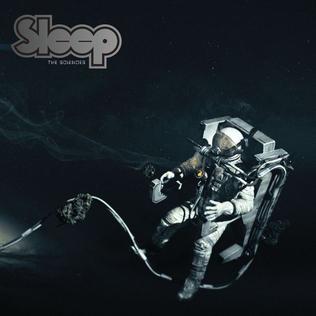
During the last decade, sneaking an album out with absolutely no prior warning became known as doing a Beyonce. Such was the case with Sleep's fourth album, which they dropped from upon high – very high, by the sound of things – with next to no notice in 2018. On April 20th. Of course.
An ode to weed and cranking things up as far as they would go, The Sciences made good on Sleep's position as stoner metal's benevolent, omnipresent forebears, all crushing riffs, and wigged-out doom.
The Sciences was the sound of Sleep maturing but not quite growing up. Still captivated by the herb, still with a sense of humour, but still making a bone-rattling racket that would make even the most abstemious of listeners fly on over to a higher mental plane.
It felt like the band had finally crawled, bong rips and all, towards the sound they always wanted to commit to record. It was Sleep's spiritual essence, finally realised in full.
32. Korn - The Nothing (2019)
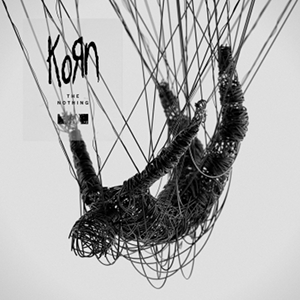
Korn have made a career from exposing the chaos and darkness inside their collective psyche, but, even by their combustible standards, the year leading up to The Nothing had been unbelievably traumatic with the passing of Jonathan Davis’ wife, Deven, the August prior.
Although it might sound trite to say it, Davis can be proud of the way he channelled that trauma to create a power-house of an album.
From 90-second opener The End Begins, we were left in no doubt that this album would be a traumatic experience, the intro consisting almost exclusively of haunting bagpipes and Jonathan screaming through inconsolable tears.
As the next few tracks proved, Davis had hugely developed as a vocalist, with both Cold and You’ll Never Find Me showcasing the brutal, death metal growl he had been perfecting alongside his trademark croon. At the end of the latter track we heard him breaking down in the studio, and the howls of pain felt undeniably real.
The Nothing was as powerful as this band had felt in a very long time. ‘For every good thing I do there is a price to pay’ he sang on closer Surrender To Failure, and only those with a heart of stone would have struggled to empathise with him.
Korn have been on a run of form over the last decade, but no one could have predicted that they would recapture that unique feeling of genuine darkness.
Unfortunately it took something deeply and tragically sad for that to happen, but Davis can take a crumb of solace that his catharsis here will have almost certainly inspired many more people to fight their own demons once again.
Our score: 9/10
31. Marilyn Manson - The Pale Emperor (2015)
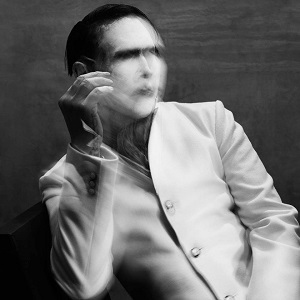
The Pale Emperor was, by Marilyn Manson’s standards, a relatively stripped back affair, focusing more on his music than the persona and showmanship that had dominated previous records. It was a good move on his part.
It was dominated by two unsurprising musical styles: slow-paced, strutting grooves with bluesy undertones that sounded like they belonged in a smoky strip club, with opener Killing Strangers setting the tone; and stomping, industrial anthems with hints of electronica that were made for an underground goth club night – particularly the pumping beats of Deep Six.
There was variety in sound. Cupid Carries A Gun had a shadowy country twang, while Warship My Wreck, one of the album's most sombre songs, was swathed in a darkness that gave it an apocalyptic feel, and Manson sounded gut-wrenchingly emotional in his wails.
Whether it was a ‘return to form’ or ‘comeback’ in the classic rock’n’roll sense all depended on what you made of Marilyn Manson’s career – be it the monstrous public enemy of his raucous formative years, or an ever-evolving artist of multiple layers and personas in the mould of his idol, David Bowie.
Either way, The Pale Emperor’s real triumph was that it firmly re-established Manson’s ability to, on occasion, still be a relevant musical force.
Our score: 7/10
Founded in 1983, Metal Hammer is the global home of all things heavy. We have breaking news, exclusive interviews with the biggest bands and names in metal, rock, hardcore, grunge and beyond, expert reviews of the lastest releases and unrivalled insider access to metal's most exciting new scenes and movements. No matter what you're into – be it heavy metal, punk, hardcore, grunge, alternative, goth, industrial, djent or the stuff so bizarre it defies classification – you'll find it all here, backed by the best writers in our game.
